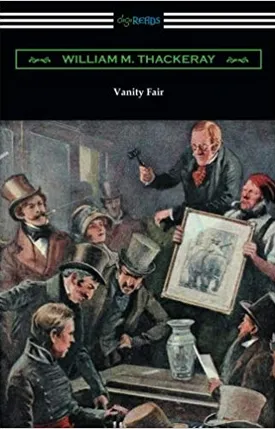William Makepeace Thackeray
William Makepeace Thackeray was an English novelist, essayist, and satirist who is best known for his novel, Vanity Fair. Born in India in 1811, Thackeray was sent to England at age five to study and to prepare for a life in writing, which he undertook at the age of fifteen.
Thackeray eventually moved back to London, where he wrote and published works in various magazines and newspapers. Thackeray was an important figure in the literary circles of the city and held a prominent presence in the “Young England” movement, which sought to revive English traditions and ideas. Through his contributions to literature, Thackeray became one of the most renowned English writers of the Victorian era.
Thackeray’s most famous work is the novel, Vanity Fair (1848). The novel follows the lives of two aristocratic women: the magnanimous and witty Becky Sharp, and the naïve and virtuous Amelia Sedley. The two women are found in a corrupt and cynical society filled with seedy characters, and their respective lives illustrate the moral decline of the upper classes as England moves from the old world to the new. Thackeray also satirizes the events and people of the time while providing a sharp commentary on the struggles of the human condition.
Thackeray is renowned not only for his masterful writing in Vanity Fair, but also for the themes that he explored in his work. His writing often investigated class distinctions, a topic that was particularly important in light of the industrial revolution and its effects on Victorian England. Thackeray also wrote on social ethics, human relationships, and religion. His works examined the hypocrisy of society and the various moral dilemmas that appeared in 19th century British society.
In addition to his critically acclaimed fiction, Thackeray also wrote travel writing, poetry, and essays. His travel pieces were collected in the volume, Notes of a Journey from Cornhill to Grand Cairo (1846). Thackeray also wrote the popular essay collections Roundabout Papers (1860) and The Four Georges (1850). Thackeray’s essays were highly praised for their wit and insight into contemporary English life.
William Makepeace Thackeray’s influence on English literature is immeasurable. His novels, essays, and poetry continue to be read, studied, and admired by readers today. His workprovides a unique commentary on Victorian Britain, and pointedly examines the ethical, social, and political issues of the time in order to illustrate the hypocrisy of the upper classes and the struggles of everyday people. He remains one of the most important writers of the 19th century.

